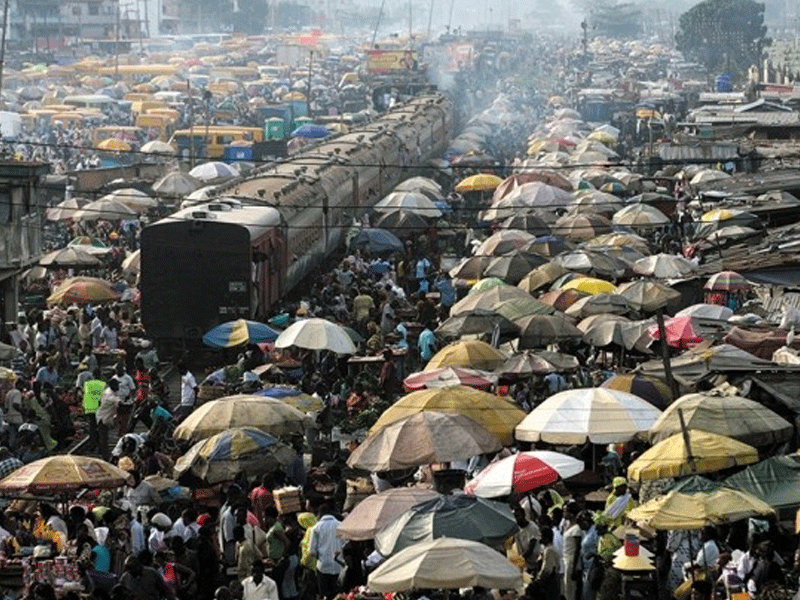Unplanned population vs limited resouces

- 209
- 0
There is no denying that the current economic crisis is mainly culminated in the supply and demand issue. Demand for food, shelter, jobs and other needs is on the rise due to the unprecedented increse inour population while the supply is short due to limited resources at our disposal.
For instance, we are an agriculture economy, but we import food stuff from abroad as our local supply of food is unsufficient in the wake of our increasing population.
Overpopulation leads to increased demand, which puts pressure on water resources, agricultural land and energy sources, affecting livelihoods and spreading poverty.
We have not educated the nation in this regard. Due to the increase in population, the water has decreased. For example, due to the excessive extraction of water in the city of Lahore, the underground water level has dropped by 2.5 to 3 feet annually, and will face further shortages in the future. Water scarcity was already there, but the deficit was met by saplings, while the Departments of Forests, Agriculture and Food remained dormant. Overpopulation has increased pollution. 93% of drinking water in urban areas of Karachi is contaminated. Contaminated water is a threat to people's health. Considering the increasing demand for water in households, agriculture and industries due to high population, it is known that by 2025, the demand-supply gap is expected to widen to 83 million acre feet (MAF).
Pollution is another issue. As a matter of fact, high population leads to pollution, Lahore city generates 7690 tons of waste daily due to its growing population, waste disposal is also a challenge.
Cities are burdened with traffic due to overpopulation, which increases fuel consumption, air pollution and waste of time. The city's economy is losing 47.9 million rupees annually due to traffic jams in Lahore.
Same is the case with the country’s financial hub Karachi. A comprehensive legal framework is needed to deal with the pressures of overpopulation on resources in Pakistan. Not only Pakistan, unbridled population is a worldwide issue.
Effective public awareness should be started in this regard. The benefits of small families should be communicated to the public.
The human race is currently in the middle of a catastrophic explosion; this explosion is the issue of enormous growth in the human population that can also be a precursor to great troubles as the growing population has increased the burden on natural resources in every region of the earth.
The population growth rate is three lakh or three and a half lakh people per day, thus annually, the population of the world is increasing by 7 crores. The increasing number of people will need food, water, clothing and shelter, the difficulty is that a large proportion of this population growth is in areas that are already under resourced.
The tremendous increase in population has made people suffer from hunger, disease, pollution and famine in different parts of the world. If this increase is not stopped, it is feared that the situation will become more tumultuous. Human life in the first period of the evolution of civilization was more than 50 million ten to twelve thousand years ago, but as agricultural activities increased and people began to settle in settlements, it is believed that by the 14th century AD, there were only about one billion people living in the world. Abundance and limited supply of medicine and food resources kept the population in check in the world.
That's why the experts admitted that there was no significant increase in population for 500 years, but as soon as the industrial revolution took hold of the world, the development of science and especially medical science changed the situation completely. So, in 1850, the population of the world reached one billion and five billion, but within just one hundred years, that is, five billion people were living in the world until 1987, and now, reaching the twenty-first century, the world's population has reached eight and a half billion, but an interesting thing is that the industrial revolution.
Europe's birthplace, the EU's population will decline dramatically by 2050, despite the influx of millions of migrants. Recently, the United Nations has also warned that the growing population and the dangerous shortage of water are bringing mankind closer to dangers.
Growing population and global economic activity have increased the pressure on water reserves. Fears are being expressed that water shortage will force millions of people to migrate, water supply will become uncertain in many places due to climate change. World Health Organization report reveals that only 22 percent of Pakistan's population has access to clean drinking water, while 85 percent are facing problems. Along with preventing wastage of water, recycling and construction of dams for agricultural purposes is our most important national need. Evidence shows that water scarcity is a major threat in Pakistan. The question is, how big a risk is it? How fast is it growing? And what should we do to deal with it or avoid it?
These are questions that need to be answered as soon as possible, before it's too late. According to WWF, the available amount of water in Pakistan is 250 billion cubic meters, of which ninety percent is for agriculture, four percent for industry and the remaining six percent for domestic use. That is, only 15 billion cubic meters of water out of 250 are available for domestic use. If we talk about water for domestic use only, 70% of the 22 crore people do not have access to clean drinking water. According to the World Financial Organization, Pakistan is at the third place in the list of countries facing water scarcity. Along with this, according to UNDP and Pakistan Council of Research in Water Resources, Pakistan will suffer from water shortage by 2025. Researchers also say that if the situation continues and no measures are taken, by 2040 Pakistan will become the most water-scarce country in South Asia. The federal and provincial governments should also think about this issue on priority basis as it is at the core of all issues.
Published in The Daily National Courier, April, 06 2024
Like Business on Facebook, follow @DailyNCourier on Twitter to stay informed and join in the conversation.

















































